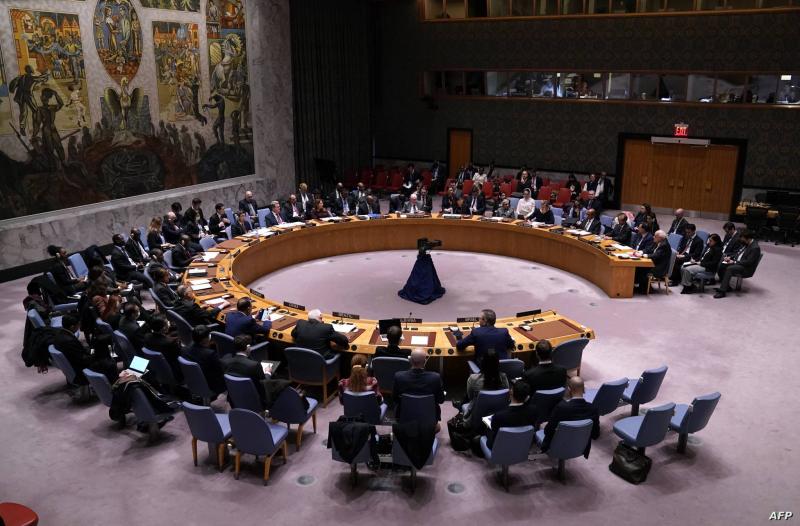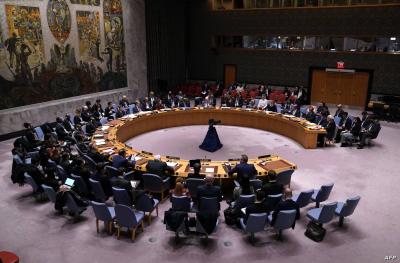The Sudanese Foreign Ministry welcomed the United Nations Security Council's adoption of Resolution 2715, which was taken at its request and viewed as a victory for its diplomacy against the mission it described as "disappointing." Others believe that the resolution, which calls for the termination of the mission's mandate and the "distribution of its tasks" to other UN agencies according to their specialties, constitutes a "trap" set for Sudanese diplomacy, enabling a stronger UN oversight than before the cancellation of "UNITAMS."
The Sudanese Foreign Ministry considered the head of the mission, German official "Volker Perthes," to be biased in the conflict between the military and civilians, and requested the UN Secretary-General to "replace him." Eventually, the UN was informed of his "unwelcome" status, forcing him to resign in September 2023, nearly three months after the call for his replacement. Subsequently, the situation escalated to a request for the complete termination of "UNITAMS" on November 17, as it was deemed to have failed in its mission and its performance was found to be "disappointing."
The UN Security Council Resolution 2715, issued on Friday, called for ending the mandate of "UNITAMS" starting from Sunday, December 3, and for halting its operations from Monday, while "transferring its tasks, programs, and funds to UN agencies, and fully ending the operation by February 29, 2024." The resolution called on the Sudanese parties to fully cooperate with the UN during the transition period and requested that the Secretary-General keep the Security Council informed about the transition and liquidation process. It welcomed the appointment of Algerian Ramtane Lamamra as the Secretary-General's personal envoy to Sudan to continue peace efforts in the country.
Former Prime Minister Abdullah Hamdok had requested the Security Council to maintain "UNITAMS," arguing that its presence was more urgent following the October 25, 2021 coup and the war that erupted on April 15. He emphasized that the "afflicted Sudanese people" needed its presence more than ever.
In a statement, the Foreign Ministry stated that the adoption of the resolution to end the mission's mandate was a response to Sudan's request presented to the Security Council. Undersecretary of the Ministry, Dafallah Al-Haj Ali, expressed his happiness with the decision during the session and thanked the council's member states for responding to his government's request. He committed to working to stop the war, address its impacts, and complete the transition process by reviving a comprehensive political process leading to free and transparent elections, affirming his government's commitment to maintaining constructive ties with the UN and cooperating with the Secretary-General's personal envoy, Ramtane Lamamra.
Political analyst Mohamed Latif noted that there were groups celebrating the resolution's issuance, considering it a victory in their struggle against the mission's head, Volker Perthes, and the "Forces of Freedom and Change" alliance, which they deemed complicit. He added, "If they had thought about it a little, they would have noticed the seriousness of the situation through the words of some member state representatives about human rights violations and civilian issues, indicating that the situation in Sudan is perilous, which requires the UN to take on more roles, not the opposite, as seems to be the case now."
Regarding the discussions held during the council meeting, Latif remarked, "The resolution canceled the mission but kept its tasks and transferred them to UN agencies while highlighting the dangerous situation, military confrontations, and humanitarian threats... So, if you cancel the civil arm, while simultaneously speaking about the dangers facing Sudan, then you—the Security Council—are responsible for your obligations toward the stability, unity, sovereignty, and security of Sudan... You will have another option," asserting that "upon reviewing this situation, you will simply discover that there is thinking towards transitioning to Chapter Seven."
The "UNITAMS" mission was formed in June 2020 at the request of the transitional civilian government to support the democratic civilian transition, with German Volker Perthes chosen as its head. Prime Minister Hamdok at the time formed a committee to coordinate with the mission, but its work became paralyzed following the October 25, 2021 coup. The transition process was disrupted as a result, and calls from supporters of the coup—including former regime figures and extremist groups—to expel the mission grew louder, leading to a march on October 22, 2022, demanding the coup leaders end the mission's presence.
In collaboration with the African Union, IGAD countries, and several regional and international organizations, the mission began in November 2021 to establish a political process to resolve the conflict between civilian forces and the military that orchestrated the coup, resulting in a "framework agreement" between the army and civilian forces, determining the return to civilian democratic transition and the transfer of authority to civilians. However, war broke out due to disputes between the army and the "Rapid Support Forces," blocking the agreement's implementation.
Hostility from extremist groups backing the army similarly intensified against mission head Volker Perthes, leading to calls for his resignation and eventually deeming him "unwelcome," prompting him to resign in September 2023. Despite the initial push by military supporters for the expulsion of the mission's head, the demand escalated after his resignation to the calls for ending its tasks in Sudan, which was ultimately decided by the Security Council at the beginning of December.




